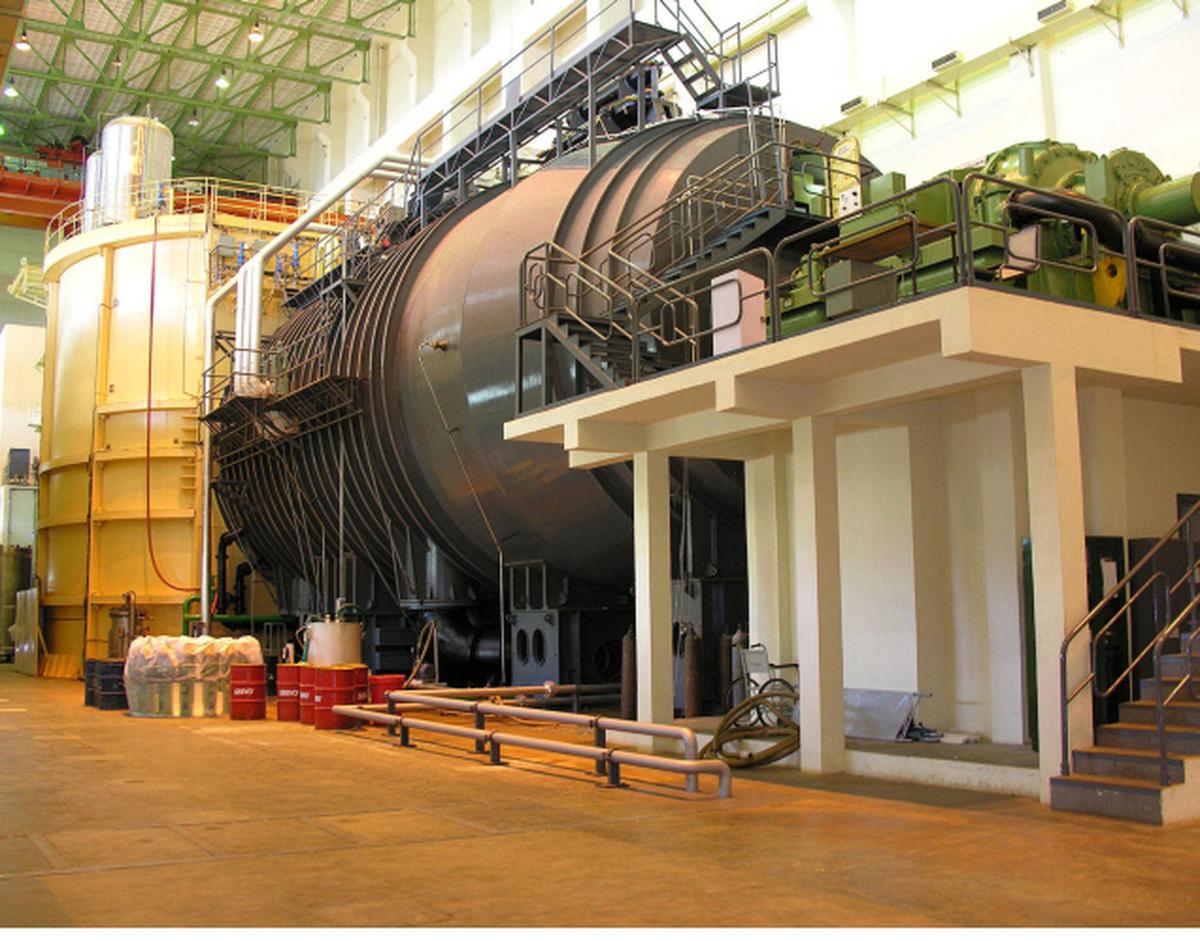A view of the Kudankulam Nuclear Power Plant, which is predicted to have six VVER-1000 reactors. VVER-1000 is a sort of PWR developed within the erstwhile Soviet Union.
| Photo Credit: PTI
Scientists in China have developed a technique to determine whether or not some nuclear fuel originated in considered one of six types of nuclear reactors.
Importantly, their technique can reliably distinguish between spent fuel from two frequent sorts of reactors which have traditionally offered a problem to scientists.
Their work was revealed in Physical Review Applied on March 9.
Nuclear fuel is a extremely regulated materials due to its damaging potential. Governments, regulators, and militaries preserve detailed inventories to safeguard it.
Nuclear forensics makes use of analytical strategies to determine the origins of nuclear supplies and whether or not they have been used for army purposes. In the present examine, the scientists used experimental information and machine-learning (ML).
Fuel from which reactors is difficult to determine uniquely?

A view of the 80 MWe indigenous PWR working at Kalpakkam. In the foreground is the stress hull and behind is the defend tank containing water. An equivalent reactor of the identical measurement powers India’s indigenous nuclear-powered submarine INS Arihant, launched on July 26, 2009.
| Photo Credit:
Special Arrangement
Spent fuel from boiling water reactors (BWRs) is difficult to distinguish from that from pressurised water reactors (PWRs).
This is as a result of each “use water as moderator and have similar thermal neutron spectra, so they are quite similar in neutron reaction mechanism,” Shengli Chen, assistant professor on the Sun Yat-Sen University, Guangdong, and a coauthor of the examine, advised The Hindu by e-mail.
The group used experimental information as a substitute of simulations, whose accuracy is unknown.
How do is nuclear fuel recognized?
The reactor kind, the fuel’s publicity time contained in the reactor, and the extent of the fuel’s enrichment can uniquely determine spent nuclear fuel.
For nuclear fuels, ‘enrichment’ refers back to the quantity of the fissile isotope, corresponding to uranium-235, that the fuel compound, like uranium dioxide, accommodates.
File photograph launched by the Atomic Energy Organization of Iran reveals centrifuge machines within the Natanz uranium enrichment facility in central Iran.
| Photo Credit:
AP
Using a database that accommodates the composition of various isotopes in spent fuel from reactors over 50 years, the researchers developed equations that associated these portions to one another.
They assumed based mostly on previous work by different scientists that the connection between publicity time and the ratio of isotopes, for instance, could possibly be represented by a linear equation.
Once they’d an equation, they utilized it to totally different isotope ratios within the database. Where their equation’s resolution differed from the desk worth, they tweaked the equation till it match.
If one amount can be decided via different measurements, like gamma-ray emissions from the spent fuel, the crew may calculate the values of the opposite two portions utilizing the equation.
What is the difficulty with BWRs v. PWRs?
They additionally educated information from the database to develop three ML fashions to differentiate fuel from BWRs from that from PWRs.
In BWRs, the fuel rods are submerged in water. When nuclear fuel undergoes fission, it releases warmth, boiling the water. The ensuing steam drives a turbine. In PWRs, the fuel rods aren’t uncovered to the water; solely the warmth is exchanged.
A fabric referred to as the moderator slows neutrons down in order that they’ve simply the suitable power to set off fission. Such neutrons are referred to as thermal neutrons.
It’s exhausting to say if spent fuel is from a BWR or a PWR as a result of the energies of the thermal neutrons are related in each reactors. So the ensuing nuclear reactions equally have an effect on and remodel the nuclear fuel.
What did the ML mannequin discover?
The group’s finest ML fashions have been capable of appropriately determine 91% of fuel from BWRs and 95% of fuel from PWRs.
Among others, the mannequin used a standard technique referred to as logistic regression: based mostly on finding out a dataset of impartial variables, the mannequin estimated the possibility that an end result that is determined by these variables will happen.
“There was no explicit information about the accuracy of discriminating between PWRs and BWRs” in older papers, Dr. Chen stated.
A 2014 examine, to which he pointed, used a simulation plus ML technique with a low classification-error fee, but nonetheless reported problem separating BWRs from PWRs.
“Previous works, based on simulation data,” may differentiate between the reactors whereas “our work, based on experimental data, explicitly concludes which reactor type has been used to irradiate the sample.”


